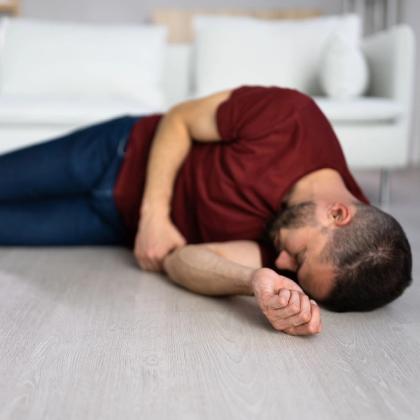This podcast episode is worth 0.31 CPD credits. Upgrade to Pro
Transient loss of consciousness (TLoC) affects nearly half the population of the UK at some point in their lives and is not an uncommon presentation in primary care. In this episode, Dr Kate Chesterman discusses the initial assessment of these patients and the factors that will help to differentiate between vasovagal syncope, cardiac syncope and epilepsy. She gives guidance on referral criteria and signposts useful resources that help assess fitness to drive and provide important safety information for patients.
Key references
- NICE. 2023. https://www.nice.org.uk/guidance/cg109.
- RCGP Learning. https://elearning.rcgp.org.uk/mod/book/view.php?id=12386.
- Kavi L. Br J Cardiol. 2017;24:62-65. doi: 10.5837/bjc.2017.013.
- NICE. 2023. https://www.nice.org.uk/guidance/ng127.
- NICE. 2022. https://www.nice.org.uk/guidance/ng217.
- DVLA. 2016. https://www.gov.uk/guidance/neurological-disorders-assessing-fitness-to-drive#transient-loss-of-consciousness-blackouts--or-lostaltered-awareness.
- Epilepsy Action. https://www.epilepsy.org.uk/living/safety.
- RCGP Learning. https://elearning.rcgp.org.uk/pluginfile.php/168915/mod_book/chapter/252/syncope%20checklist%20v.2.pdf.
- RGCP Learning. https://elearning.rcgp.org.uk/pluginfile.php/168915/mod_book/chapter/269/Syncope%20pathway%20primary%20care.pdf.
Key take-home points
- TLoC affects nearly half the UK population at some time in their lives.
- Causes of TLoC can be grouped into syncopal and non-syncopal causes.
- History should include asking about the circumstances of the event, the position of the patient, any association with stress or pain, and any relationship to exercise. Enquire about prodromal symptoms.
- A collateral history will help to understand the patient’s appearance and colour and whether there were any abnormal behaviours or movements such as incontinence, tongue-biting or limb-jerking.
- Other factors that it is important to cover in the history include asking about any previous events, the patient’s past medical history and any relevant family history.
- Check vital signs, including lying and standing blood pressures, and examine for abnormal heart sounds as well as signs of heart failure and neurological abnormalities.
- Uncomplicated vasovagal syncope can be diagnosed when the loss of consciousness is associated with the 3 Ps of posture, provoking factors and prodromal symptoms, in the absence of any features to suggest an alternative diagnosis.
- For a typical vasovagal syncope, the Driver and Vehicle Licensing Agency does not need to be informed unless the patient holds a Group 2 licence, the syncope occurred while sitting, or there were insufficient prodromal symptoms to allow the patient to get to a place of safety prior to the loss of consciousness.
- Guidance is available on the gov.uk website on the page dedicated to assessing fitness to drive in patients with neurological disorders.
- Patients who have had a suspected first epileptic seizure should be referred urgently to neurology to be seen within 2 weeks.
- Patients with suspected seizures should be given appropriate safety advice.
- Unless the patient has a clear diagnosis of uncomplicated vasovagal syncope, situational syncope, postural hypotension or suspected epilepsy they should be referred to cardiology for further assessment.
Create an account to add page annotations
Annotations allow you to add information to this page that would be handy to have on hand during a consultation. E.g. a website or number. This information will always show when you visit this page.
